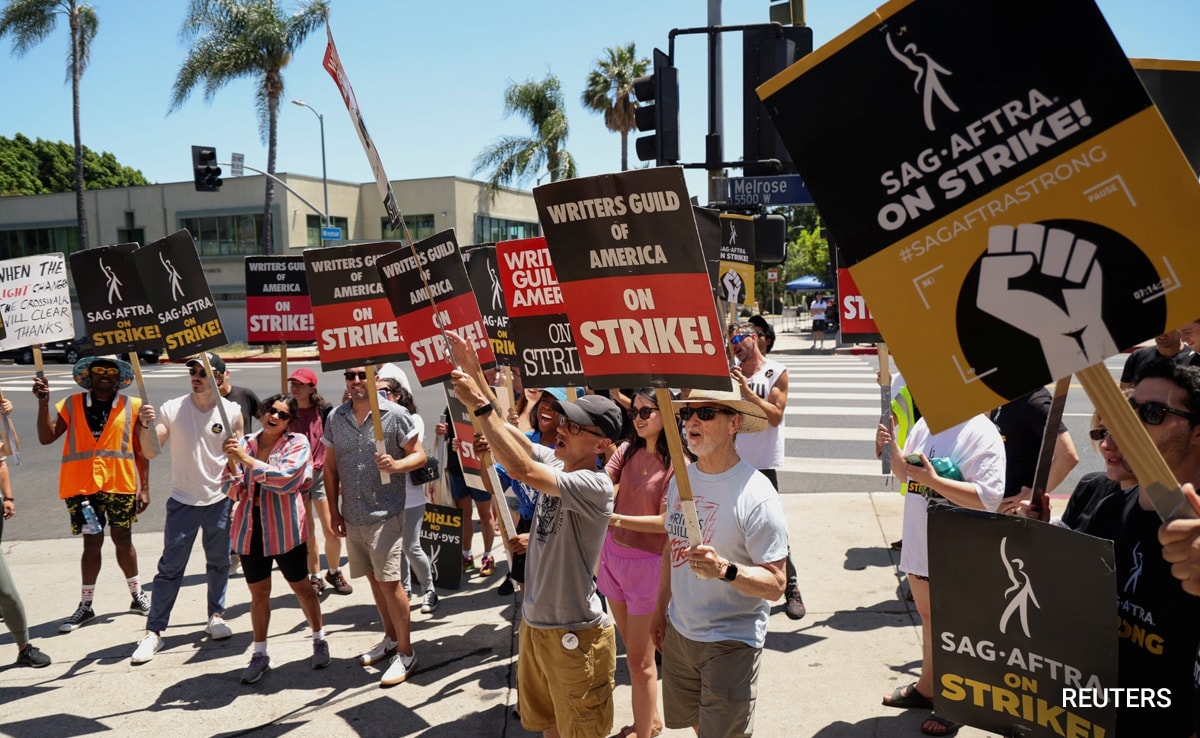
Writers say their salaries have not kept up with inflation (File)
Los Angeles:
Striking writers whose industrial action has brought Hollywood to a standstill said Sunday they had reached a deal with studios that could see them go back to work.
“We have reached a tentative agreement on a new 2023 (minimum basic agreement), which is to say an agreement in principle on all deal points, subject to drafting final contract language,” said a letter the Writers Guild of America sent to members.
“We can say, with great pride, that this deal is exceptional — with meaningful gains and protections for writers in every sector of the membership.”
The letter, which AFP has seen, gave no details on the agreement. It said language was being ironed out and that the final say would be given to the membership.
“To be clear, no one is to return to work until specifically authorized to by the Guild. We are still on strike until then. But we are, as of today, suspending WGA picketing,” it said.
Thousands of film and television scribes downed their pens in early May over demands including better pay for writers, greater rewards for creating hit shows, and protection from artificial intelligence.
They have manned picket lines for months outside offices including Netflix and Disney, and — after they were joined by striking actors in mid-July — have brought the US entertainment industry to a costly standstill.
Negotiations had been moribund for weeks until a new sense of urgency appeared to have been injected into the process in the last few days, with the heads of Netflix, Disney, Universal and Warner Bros Discovery personally attending the talks.
Among their demands, writers say their salaries have not kept up with inflation, and that the rise of streaming has diminished the “residuals” they earn when a show they work on becomes a smash hit.
Studios have offered greater transparency in streaming audience numbers, while stopping short of offering to revise the way residual payments are calculated.
Writers have also demanded curbs on the use of AI, which they fear could be used to partially replace them in generating future films or show scripts, and therefore further undercut their pay.
The Financial Times reported Milken Institute research at the start of September that put the cost of the current Hollywood standstill at $5 billion.
The WGA strike is significantly longer than the writers’ 2007-08 walkout — which lasted 100 days and cost the California economy $2.1 billion.
Even if the writers deal is finalized, the actors’ strike would continue.
There have been no known contract talks between the studios and the actors’ 160,000-strong SAG-AFTRA guild since that strike began.
But the two unions share many similar demands, and insiders say that a WGA deal could help to pave the way for a resolution to the actors’ strike.
(Except for the headline, this story has not been edited by NDTV staff and is published from a syndicated feed.)




